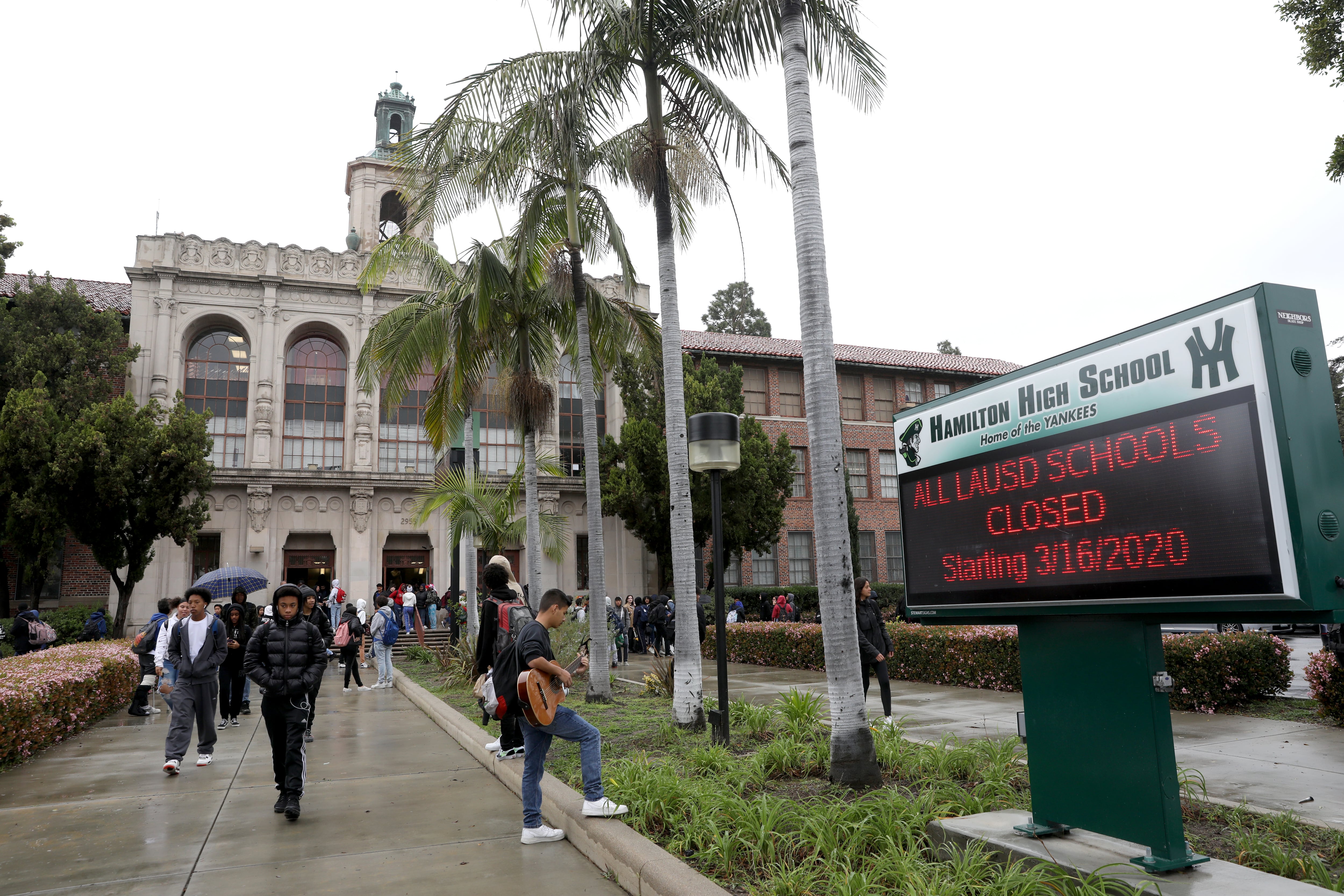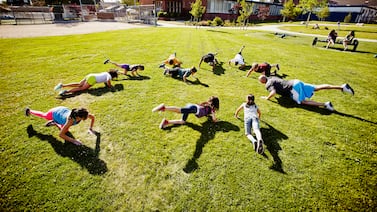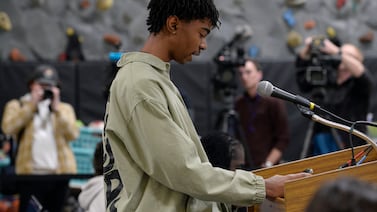As coronavirus cases continue to climb in many states across the country, school districts both large and small are reaching the same conclusion: It’s safer to start the year virtually.
Los Angeles Unified, the nation’s second-largest school district, announced plans jointly with San Diego Unified on Monday that they would start the school year with online instruction, citing “skyrocketing” coronavirus infection rates in California.
Earlier that same day, an 11,000-student district in Indianapolis also said it would start off its school year in late July with fully virtual instruction, saying the school board was in a tough spot after receiving little guidance from state and local officials.
They’re not alone. School officials in metro Nashville, Atlanta, Phoenix, and other California cities like Oakland and San Bernardino all have made similar decisions.
That number could grow, as school officials in places like Memphis have signaled they may start the year virtually if cases continue to rise in their area. Officials in cities like Pasadena, California are re-surveying parents to gauge their interest in starting the year fully online after previously announcing they planned to offer a mix of in-person and virtual instruction.
The decision to return to full-time virtual learning in several cities marks a sea change, upending the expectations that many educators, parents, and students had earlier this summer that the fall would bring a return to some of the normal routines of school, even if only for a few days a week.
The announcements come as President Trump and Education Secretary Betsy DeVos have ramped up the pressure on school officials to reopen school buildings and make a full return to in-person instruction, even as some states are seeing new highs for coronavirus hospitalizations, and many teachers and parents say they fear going back to work or sending their children back to school at this stage in the pandemic.
These decisions will likely bring some peace of mind to worried parents and teachers. But as more and more districts make plans to return indefinitely to remote learning, it raises big questions about whether districts will be able to improve the instruction they’re able to offer virtually and reach a greater share of students than they did this spring — and about how working parents will continue to manage without the child care that in-person school provides.
Teachers in places that have announced plans to begin the school year online say the decision means they’ll be able to better prepare for the start of the new school year.
“Knowing the whole first quarter is going to be online is tremendously helpful, because I can put those other thoughts on the back burner,” said Kristin Roberts, a high school English teacher in Arizona’s Phoenix Union High School District.
Now, Roberts said, she can focus on how to “get good at teaching online, because that’s what I’m going to be doing for the next nine weeks.”
But it doesn’t solve everything, she said, noting some of her colleagues are still worried about what will happen next and are making career back-up plans if they’re pushed to go back into school buildings too soon.
Some parents, too, are hoping that the decision will make it easier for districts to focus on improving virtual instruction for now.
“A lot of the biggest problems with the virtual learning was the shift on the fly,” said Richard Quartarone, an Atlanta Public Schools parent and the president of the Atlanta Council of PTAs, which asked the district to focus on virtual learning when school resumes in August. “If you put all your resources into just opening back up, without thinking about how to hone curriculum and support your teachers … it’s going to be really problematic.”
Calls to return to in-person instruction have created tensions in states like Texas and Florida, where coronavirus cases are rising, but state officials are requiring school districts to offer five days a week of in-person instruction if families want it. Educators in some of those states’ largest school districts are not sure they can meet those demands.
The head of Dallas schools, for example, is considering pushing back the start of the school year by a few weeks to delay offering in-person instruction. On Monday, the Houston teachers union called on the district to begin with virtual instruction, given the spike in coronavirus cases in the city. And the head of Miami-Dade schools has said he’s working with the county’s mayor and public health experts to decide next steps as coronavirus cases surge in Florida.
“The Superintendent and I are very worried about our children returning to school next month unless the spread of the virus is tamped down immediately,” Miami’s mayor said Friday in a statement.
Karyn Thompson, whose 6-year-old daughter attends a San Diego elementary school, said although it’s been a challenge for her and her husband to balance working full-time while caring for their three young children, she supports the district’s decision to start the year online.
“I’d rather feel like we are making good decisions trying to be safe rather than just pushing her out the door and hoping for the best,” Thompson said.
But she’s planning to make some changes. For example, Thompson let her daughter borrow her computer this spring, while Thompson used a loaner laptop from work. But now that virtual learning will be more permanent, Thompson says her family will likely ask San Diego school officials to provide a computer. Similarly, the family hadn’t hired any additional child care while their sons’ usual program was closed, but they are now thinking of reaching out to caregivers who were laid off from that program.
Thompson doesn’t worry about her daughter falling behind academically with a return to virtual learning, but she does worry about the social skills she’s not getting to practice.
“Now with that off the table, yeah, I don’t know,” she said. “I guess we will just figure it out.”
Sarah Darville contributed reporting.





